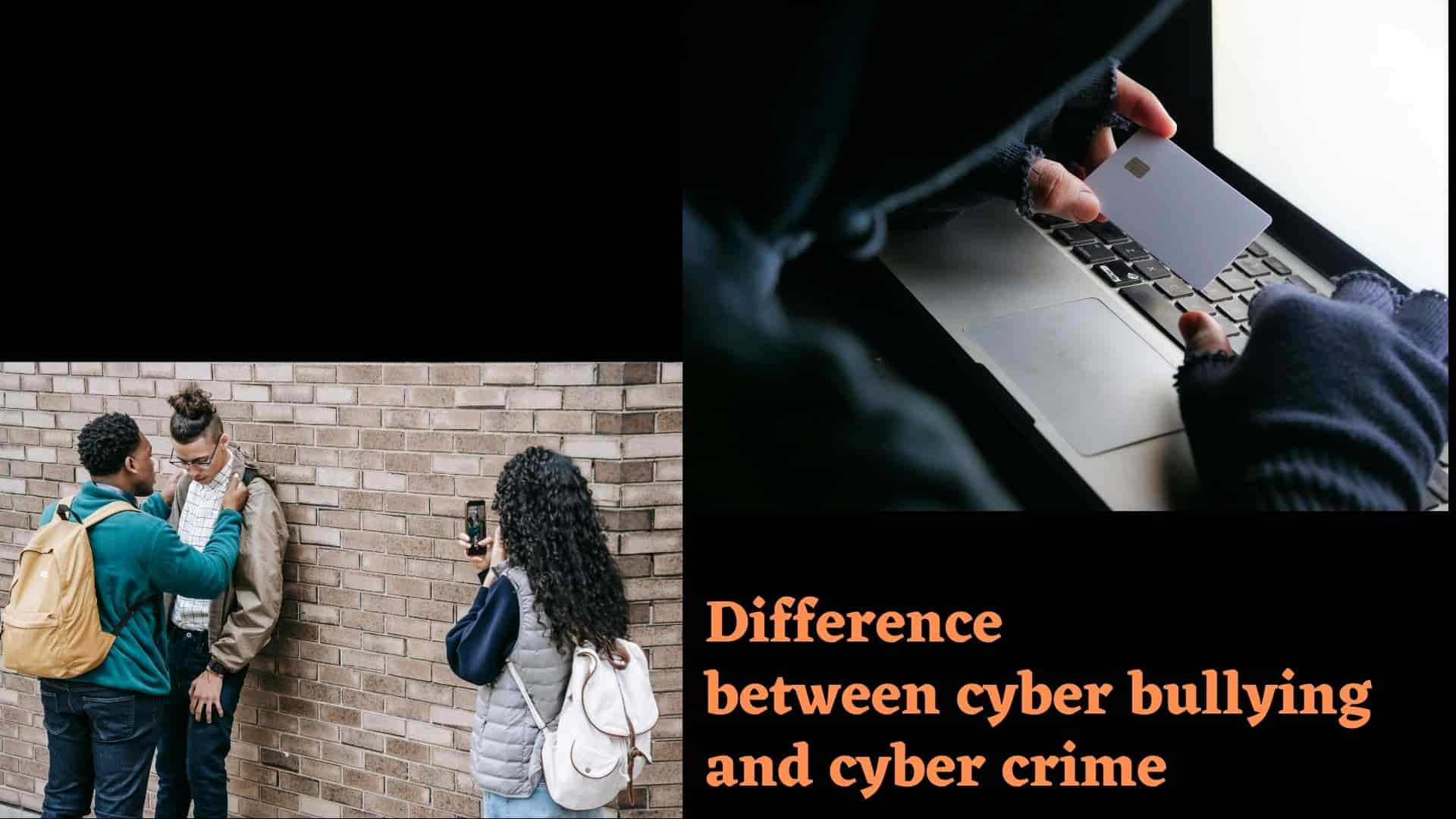How to Fix Discord Error: 'Installation Has Failed'

Cybercrime has become a severe issue due to the expanding use of the Internet in society. Here are the key differences between cyberbullying and cybercrime.
With the development of technology, people now depend on the Internet for everything. The Internet has provided men with access to all information at their fingertips. The Internet facilitates every conceivable human activity, including social networking, online purchasing, online learning, and online employment.
Cybercrime is distinct from all other crimes that occur in society. Cybercrime has no geographical bounds, and its perpetrators are unknown.
Let's get in-depth and understand more about cybercrime, bullying, and the law governing the world.
Cyberbullying is bullying that occurs via digital technologies such as mobile phones, laptops, and tablets. Cyberbullying can occur via SMS, Text, and applications and online via social media, forums, and gaming platforms where individuals can see, engage in, or exchange content.
Cyberbullying consists of sending, uploading, or spreading harmful, inaccurate, or offensive information about another person. It may involve disclosing private or confidential information about another individual that causes embarrassment or humiliation.
Some instances of cyberbullying transcend the line into illegal or criminal conduct.
The most frequent locations for cyberbullying are:
Cybercrime is a broad term used to describe criminal activities in which computers or computer networks get utilized as a tool, a goal, or a location for criminal action; examples include electronic wracking and denial-of-service attacks.
It includes phishing, credit card fraud, bank robbery, illegal downloading, industrial espionage, child pornography, kidnapping children through chat rooms, scams, cyber terrorism, production and/or distribution of viruses, spam, etc.
It also encompasses classic crimes when computers or networks facilitate illegal activity. Cybercrime in many countries is on the rise, and it has become a new trend to earn money through fraudulent phone calls or exact revenge by hacking other accounts.
Cyber Law often known as IT Law, is the body of law governing information technology, such as computers and the Internet. It is related to legal informatics and oversees digital information circulation, software, information security, and e-commerce.
Cyberlaw in India is not a distinct area of law but rather encompasses elements of contract, intellectual property, privacy, and data protection legislation. The concept of intellectual property is central to IT law.
Cyberlaw encompasses various types of objectives. Some laws regulate how individuals and businesses may use computers and the Internet. In contrast, others prevent persons from becoming victims of crime due to criminal activity such as cyberbullying and cybercrime. The principal cyber law areas include:
Consumers rely on cyber regulations to safeguard them from online fraud. There are laws to prevent online identity theft, credit card theft, and other financial crimes. A perpetrator of identity theft may face state or confederate criminal charges, and a victim may also bring a civil action against them.
Internet usage has facilitated copyright breaches. It was too simple to violate copyrights in the early days of online communication. Copyright infringement is a branch of cyberlaw that safeguards the rights of individuals and businesses to profit from their creative works.
Some people utilise the internet to express their opinions and engage in defamation. When individuals use the Internet to spread false information, they may cross the line into defamation. Civil defamation rules protect persons against false public statements that can affect a business or an individual's reputation.
Criminal law prohibits harassment and stalking, which online statements can violate. When someone repeatedly posts threatening claims about another individual online, they violate civil and criminal statutes.
Freedom of speech is a crucial aspect of cyber law. Even if cyber laws prohibit certain online conduct, free speech rules allow people to express their opinions.
Cybercrime is the act of stealing data, money, or other valuables over the Internet. The highly organized hacking groups, or what we refer to as "Adversaries" or "Adversary Groups", typically commit cybercrime. Target Breach and Sony Breach are examples of cybercrime.
Cyberbullying is an act of intimidation in which the attacker attempts to make the victim feel inferior in whatever aspect they are targeting. It would be the case if a high school student uploaded a video of the target to YouTube or Facebook to shame or humiliate him or her.
Cyberbullying can sometimes be the result of cybercrime, particularly when criminal activity includes the theft or spread of personal information that can be used to intimidate or harass another individual.
It is possible for cyberbullying to escalate into cybercrime in some cases, particularly when the victim is subjected to threats, stalking, or the distribution of malicious material.
Let's look there a difference in tabular format:
| Cyberbullying | Cyber Crime | |
| Definition | Threats, intimidation, harassment | Criminal activity with the use of technology |
| Examples | Sending insulting messages and spreading rumors about another individual | Acts of hacking, stealing identities, committing scams, and spreading malware |
| Punishment | The law does not always penalize cyber bullying | Punishable by fines, imprisonment, or both |
| Prevention | Education, positive online behaviors, victim support | Making use of robust passwords, maintaining up-to-date software, and exercising caution when sharing confidential information online are all good practices. |
We live in a digital age where cyberspace is not limited to one's borders but encompasses the entire globe. As a result, cybercrime is rising in every country, including India, the UK, USA. Due to the continuous development of digital technology, cybercrime's adaptability poses the most significant difficulty.
Consequently, new cybercrime strategies and techniques are implemented. Therefore, cybercrime should be considered as a severe crime as other crimes in our country, such as robbery, rape, and murder.
As Cyberbullying has now become a serious national health issue, and parents and teachers starts to educate their children about the dangers of it at home and school.

